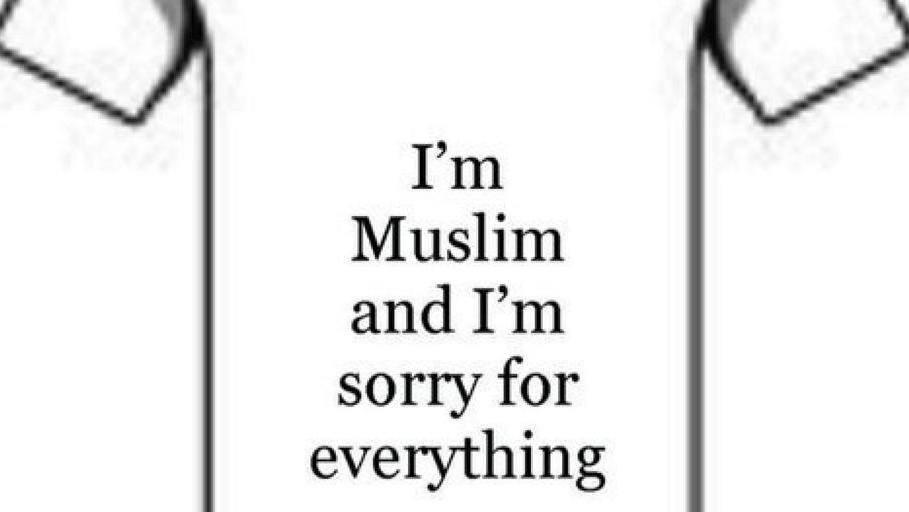This satirical t-shirt was one of many images posted on Twitter under the hashtag #MuslimApologies
Some Muslims feel like it's time for a reality check.
Yes, it's a sorry fact that there are self-described Muslims committing horrible atrocities under acronyms like ISIS. It's also true that there are an estimated 1.6 billion Muslims in the world. Should the majority have to stand up and denounce the tiny minority?
President Obama thinks so. In his address to the UN General Assembly on Tuesday, he said "it is time for the world — especially Muslim communities — to explicitly, forcefully and consistently reject the ideology of al-Qaeda and ISIL." Obama even mentioned #NotinMyName, a hashtag and campaign that started in Britain, which Muslims can use to disassociate themselves with al Qaeda and ISIS.
But frustrated Muslims have created another hashtag, #MuslimApologies, an emotional and satirical response to feeling like they have to constantly apologize for extremists.
There are tweets sarcastically apologizing for other Muslim inventions like coffee, chemistry, shampoo and cameras. Soon the hashtag was trending and gaining plenty of media attention.
Elahe Izadi of The Washington Post, who moonlights as a standup comedian, says #MuslimApologies reflects real frustration among Muslims. "It's basically one big collective 'sorry, not sorry' on Twitter," she explains.
The tweets on #MuslimApologies come from all over the world, and while a lot of them have to do with the cultural contributions of Muslims, others are simply sarcastic.
Izadi says #MuslimApologies comes at a time when Muslims, especially those in the United States, have a huge public relations problem. A poll taken this month by the Pew Research Center found that 50 percent of Americans think Muslims are more likely to encourage acts of violence — and that Islam allows such incitement.
"If they're able to put out other narratives — not just about inventions and women's rights, but also to show that Muslims have a sense of humor — it can be very powerful to encounter that narrative," Izadi says.
Izadi says she was drawn to the #MuslimApologies story both as a reporter and as a standup comedian. "I love it any time someone can employ humor to make a sharp critical point," she says. "I feel like humor, more than a lot of other forms of storytelling, can really get right to the point … and really hit people in a way that other things just can't. "
